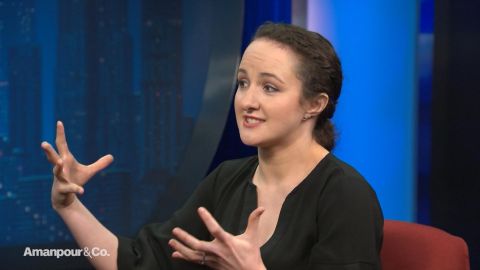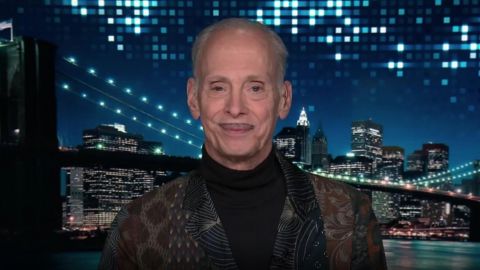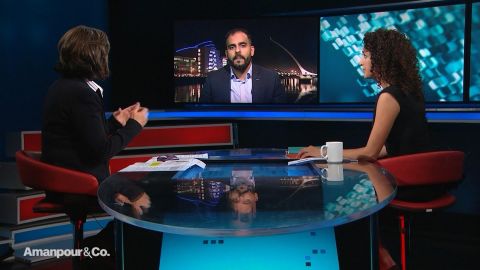Read Transcript EXPAND
MAYA FOA: Yes. So, we really wanted to highlight the extraordinary and devastating state of affairs in Egypt right now. We’ve been tracking executions and death sentences in these mass trials since president el-Sisi came to power and indeed before that, and what we’ve seen is this enormous uptick and it’s meant that lots and lots and lots of young people, of people who have been tortured, innocent people, are all being swept up in this system of mass trials, this repressive system and they’re being systematically sentenced to death by their hundreds and maybe of them being executed.
CHRISTIANE AMANPOUR: When you say there’s been a systematic uptick, you mean worse than under President Morsi.
FOA: Yes, it’s certainly become more dramatic, the use of mass trials has increased, the use of the death penalty has increased and the number of executions has increased.
AMANPOUR: And worse than under Mubarak, which was before the Arab Spring?
FOA: It’s certainly getting worse. This is the most we’ve seen. It’s unprecedented in terms of the scale, the numbers being tried and sentenced to death en masse in these mass trials. So, we’re talking 560-something sentenced to death in one mass trial in the Minya Province a couple years back. So, it’s really scales that we’ve not seen.
AMANPOUR: And what do you think the reason is? Is it a political weapon? What is it?
FOA: Yes, it’s a tool to suppress dissent. We’ve got young people, we’ll hear from Ibrahim Halawa, but other young people, lots of people who were protesting, pro-democracy, they were trying to exercise their right to free assembly, their right to freedom of speech, and they were all gathered together, sentenced to death, some of them sentenced to death in these very large groups, treated as adults, tortured, that is a sign. That is a president trying to show that he’s got an iron fist and that he will not suffer any kind of dissent. That’s what we see.
AMANPOUR: So, Ibrahim, let me turn to you because Maya just mentioned you and I understand that you were classified as a child when all of this happened to you. You were 17 years old. Just tell me what happened. You’re an Irish citizen. What on earth were you doing in Egypt at a demonstration?
IBRAHIM HALAWA, FORMER PRISONER IN EGYPT: Yes. So, I usually go to Egypt regularly because my parents are Egyptian and I go visit my aunties and uncles over there. And while I was there, I’ve seen, you know, that it was kind of the start of Sisi’s regime and the coup. And at that stage I had to kind of, you know, just be aware of what was happening because it was kind of being — it was becoming dangerous for me and my sisters. But then, two of my close friends were shot dead that I knew personally. And coming back from a democratic country, I knew that that was — you know, that was a violation to any human right possible out there and I straightaway said that, you know, the least thing I can do for my friends was give them my voice and help them. And I was imprisoned for it four years unjustly and I was proven innocent after four years.
AMANPOUR: So, just walk me through how it happened. What, you went do this demonstration with your sisters and then what happened?
About This Episode EXPAND
Christiane Amanpour speaks with Maya Foa and Ibrahim Halawa about Egypt’s mass trials and death sentences; and John Waters about his new memoir “Mr. Know-It-All.” Alicia Menendez speaks with Kate Hamill about “Little Women.”
LEARN MORE


